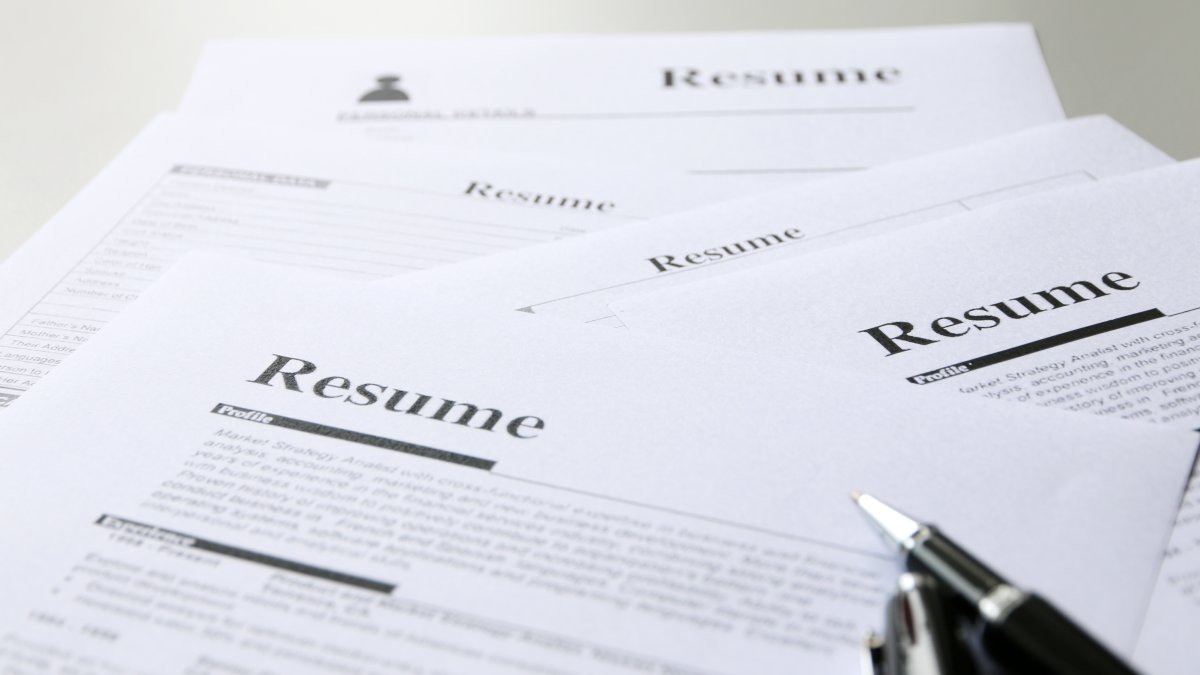
Thanks to the so-called Great Resignation, the labor market continues to be in flux.
Thanks to the so-called Great Resignation, the labor market continues to be in flux.
Millions have quit their jobs in the last few months, many to find new jobs.
But with so many resumes on the move, some applicants might not realize they could be missing out on their dream job due to artificial intelligence.
Even before the pandemic, many companies were using computers and software to scan resumes for keywords to speed up the hiring process. A resume could be weeded out before a human ever sees it.
Get DFW local news, weather forecasts and entertainment stories to your inbox. Sign up for NBC DFW newsletters.
Some companies are even using speech and facial recognition software that asks the applicant to record a video of themselves through a video platform while they answer a series of questions. The software studies that person's face to analyze 25,000 different micro-expressions and the interactions between those expressions.
"They believe they can accurately predict whether or not you will succeed in the role you’re applying to," said Casey Hasten, a hiring expert and lead recruiter for Dallas-based executive search firm VIP.
She said the practice of using AI for all aspects of hiring could be filtering out millions of qualified workers.
Local
The latest news from around North Texas.
“This isn’t the jobseekers fault,” she said. “We need to get these big companies to not rely so heavily on that AI because that’s what’s hurting our job seekers to get through. There’s tons of qualified people out there that could potentially work for your job that you’ll never see because the AI doesn’t bubble them up to you.”
In the past – this type of software and practice has inadvertently shown discrimination toward women and people of color, although work has been done to improve algorithms to prevent bias.
However, the usage of AI to find workers is only growing as companies have shifted to remote interactions during the pandemic and are relying on software in the scramble to fill open positions. It can otherwise be impossible to sort through the massive volume of applications without the help of technology.
“There’s a lot of movement in the job market right now. In the last three months, we’ve seen an average 4.3 million people quit their jobs each month,” said Hasten. “For every candidate, there’s four openings in the job market.”
A recent Bankrate survey also shows more than half of U.S. workers plan to look for a new job in the coming year.
Another survey by PwC found that 88% of company executives are seeing higher turnover than normal and that 65% of employees surveyed are looking for a new job.
Labor Department data also shows hiring is progressing at a brisk pace — nearly 6.5 million in September, more than 2 million more than those who quit.
That’s why experts are warning job-seekers that companies could be using applicant tracking systems, or ATS, to narrow down candidates as quickly as possible. Websites like Indeed, LinkedIn and Glassdoor also use algorithms to help employers sort through the flurry of resumes to fill crucial positions fast.
Hasten sees countless resumes on a regular basis and said the best thing jobseekers can do is to be prepared.
She shared some tips to navigate your resume through the algorithms:
- Try uploading it in a Word or “docx” format instead of PDF. The PDF file format can make it harder for software to analyze it correctly and your resume could be rejected in error.
- Typos and bad grammar could get your resume weeded out in the applicant tracking system.
- Avoid unusual graphics, fonts or pictures in your resume – keep it simple.
“Do not add your picture to the résumé. You’re setting the employer up for a discrimination case if you do that,” Hasten said.
If you need help adjusting the wording in your resume to match more closely with the job you want, Hasten suggests using a website called Jobscan.com, which can help you increase your resume’s chances of making it to a manager.
"What you can do is take the job description, put your résumé up beside it, and it will give you a percent match. That's another way the AI screens you out, is how closely you match the job descriptions,” she said.
Hasten’s final piece of advice is simpler – search for a human.
“I actually gave this advice to my sister. She is going after her dream job right now and she knew who the hiring manager was, so she connected with him on LinkedIn and wrote a little note,” she said. “Let them know that you’re interested in their role and that you have applied. It goes a step further and helps you stand out to the hiring manager.”